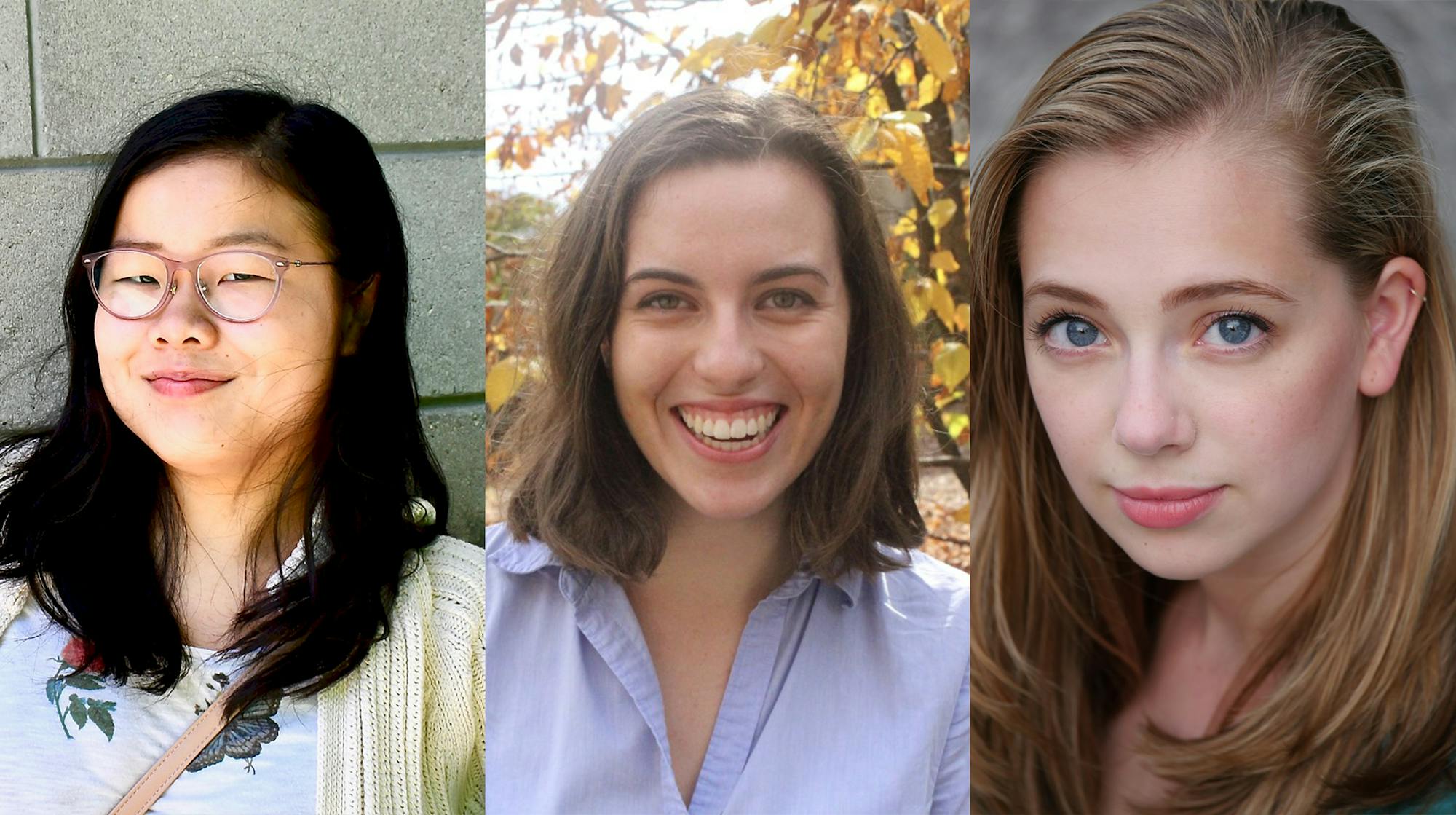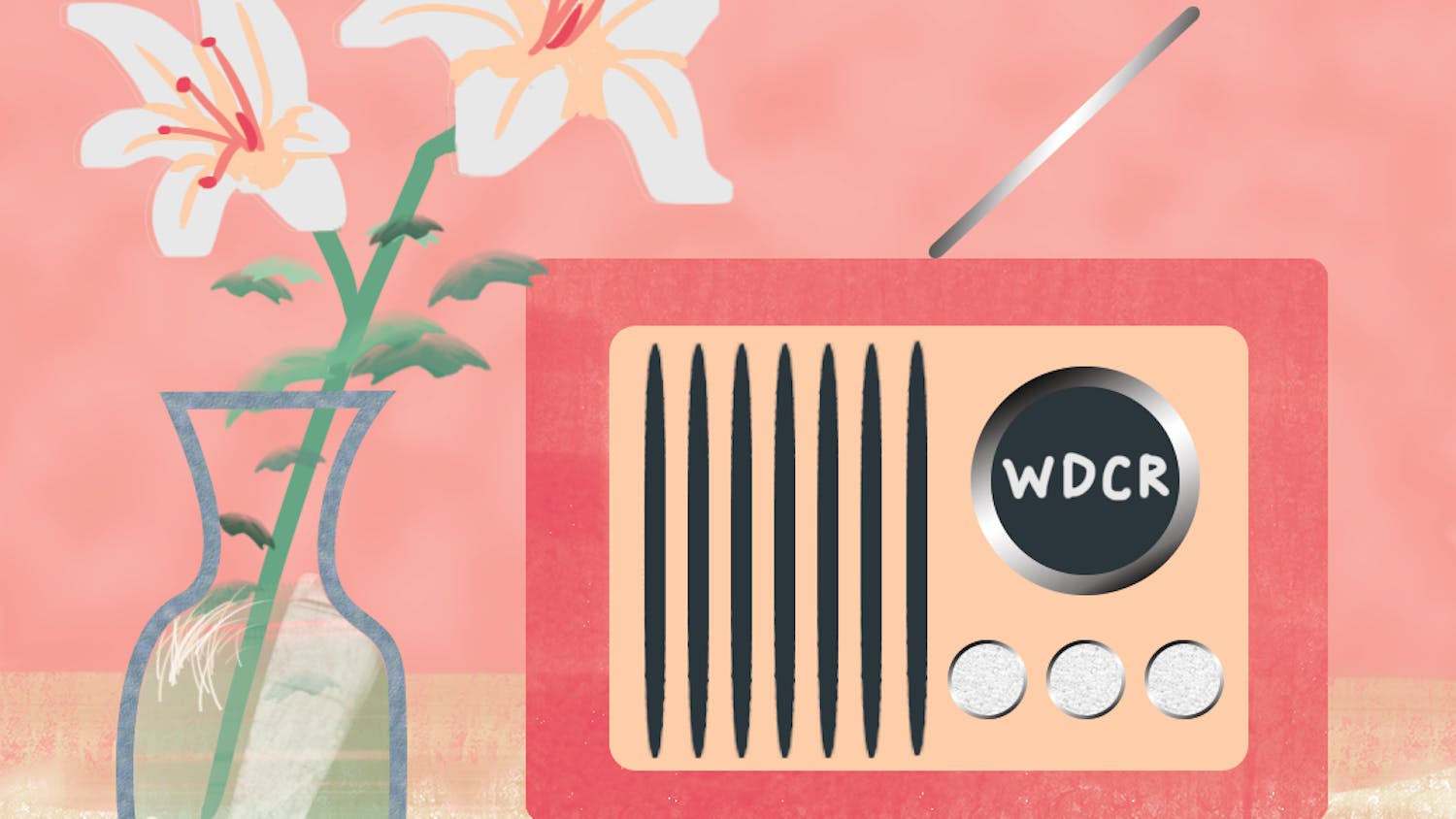This term, theater students and faculty faced an unforeseen challenge when the College switched to remote learning. For some students, months of preparation and practice were put to the test as they scrambled to adapt to performing their projects remotely.
Despite the circumstances, the Dartmouth theater department presented the community with six student productions during the month of May. These projects were conveyed in a variety of formats, including livestreamed performances, a dance showcase, a podcast play and a radio play.
Sophia Kinne ’20 created an original radio play, “So Over the Moon,” which she performed on Dartmouth College Radio on May 26.
For Kinne, performing remotely made her question her prior understanding of theater and encouraged her to rework the ways in which she communicated with the audience.
“‘What is theater?’ is what’s on everyone’s mind right now,” Kinne said. “Especially because so much of how we would have defined theater before has been taken away — the live component, being in a physical theater — having something performed over a screen makes us question: ‘What exactly is it that our art is?’”
Kinne said that she was particularly interested in maintaining the live nature of theater in her production, which made radio a natural choice.
However, the combination of the remote term, as well as the transition to radio, wasn’t without its challenges. Kinne noted that living with her sister made it challenging to find the privacy to practice and perform. When she faced technical difficulties, she could no longer simply walk over to the theater department offices to get assistance. Instead, issues had to be resolved through Zoom calls.
“It was definitely an exercise in communication to clearly communicate what I wanted and how to ask how to make that happen,” Kinne said. “But I learned a lot through that.”
According to Kinne, the whole experience has been eye-opening and has challenged the traditional constraints under which she worked in the past. Kinne said that the remote nature of the productions led her to use more first and second-person dialogue to talk directly to her audience. She used the altered dialogue as a storytelling device to render her performance more personal and intimate. She noted that she misses the ability to be present with the audience and share with them directly, so she found unexpected joy in the intimacy of presenting her work remotely.
Naomi Lam ’21 decided to tackle a remote play when she received an email from the theater department asking for student projects.
“Kind of on a whim I decided, you know, it’d be really cool if someone did a podcast and collected pieces from different people [and] put it together. So I submitted a proposal and then it went through,” Lam said.
Lam, a history and theater major, believed that the circumstances would provide a unique opportunity in theater, where she would have a part in recording this moment in history.
While creating her podcast play, “Vox Clamantis in Covid,” Lam was surprised to find that her biggest challenge was getting people to submit stories.
“Part of it is that people don’t think they have a story worth telling. It is such an important moment in history,” Lam said. “People are afraid to share something that they think is valuable, but when I did get pieces they were all amazing. They were all going into the podcast.”
According to Lam, she intentionally deviated from the bleak COVID-19 coverage she saw in the news. In order to elicit more positive submissions from students, she suggested lighthearted prompts in her emails, although she also accepted more negative stories. Ultimately, she wanted students to express themselves, and to provide catharsis to those who wished to share their stories.
The remote aspect of the production appealed to Lam’s creative side, and she admitted that if not for COVID-19, she would not have been inspired to create a podcast play. Much like going on a walk and talking on the phone with a friend, Lam felt that by employing the podcast platform, her piece was able to reach a certain level of intimacy that is difficult to achieve remotely.
“You’re not with the person, but you’re trying to experience it with them,” Lam said.
Kerrigan Quenemoen ’20 presented her honors thesis project, “Inhibit/ed,” via a livestreamed performance on May 29.
Previously, Quenemoen interned at Northern Stage in White River Junction, where she worked with adults and child actors and eventually became interested in young adult theater. This fall, she began independent studies of young adult theater, which inspired her to write a play dedicated to this group.
“I wrote a play that was called ‘Tattered.’ It was a completely different play, and it was going to be acted by me and a young performer from the area, but because of coronavirus and everything, I had to adapt and instead of just doing something like reading over Zoom, I decided to rewrite the show as a one-man show and have it take place at my house,” Quenemoen said.
Like other theater students, Quenemoen faced challenges in transferring her work to a remote format. The adapted play includes some stories that were made for “Tattered,” but it uses a completely different script.
“It was mostly just letting go of what my thesis was going to be,” Quenemoen said. “I was really stuck and attached to the vision I had of what my show was going to look like this term, and I really did not want to let that go and to rethink it.”
However, Quenemoen said that through the urging of her advisors, who encouraged her to think creatively, she was able to create something truly unique.
The revamped play, “Inhibit/ed,” focuses on the challenges that a senior in high school faces while stuck in isolation. This sentiment resonated with and inspired Quenemoen.
“I am really glad that [my advisors] did what they did,” Quenemoen said. “I was very stubborn about it at first, but I think it turned out for the best.”




